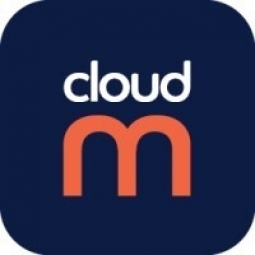Technology Category
- Application Infrastructure & Middleware - Database Management & Storage
- Platform as a Service (PaaS) - Application Development Platforms
Applicable Industries
- Equipment & Machinery
Applicable Functions
- Sales & Marketing
Use Cases
- Inventory Management
- Time Sensitive Networking
Services
- System Integration
About The Customer
InZone Industries is a company with a nationwide presence, employing staff across the country. The company was divided evenly between using Microsoft and Google, which presented unique challenges in managing and standardizing email signatures across the organization. The company's IT Manager, Thomas Erasmus, is responsible for controlling all IT systems within the organization and is constantly seeking ways to implement smoother processes, increase productivity, and maintain brand consistency across the business. Thomas was managing 120 users at the time of implementing CloudM, a number that has since grown to over 400.
The Challenge
InZone Industries, a company with a nationwide presence, was facing a significant challenge in maintaining brand consistency across its email communications. The company's employees, spread across the country, were using different email signatures, each with varying messages, logos, and branding. This lack of uniformity was affecting the company's brand identity and professionalism. The problem was further exacerbated by the fact that the company was split evenly between using Microsoft and Google, making the management of signatures even more challenging. The company's IT Manager, Thomas Erasmus, was in search of a solution that could standardize the email signatures across the organization, regardless of the platform being used.
The Solution
The solution to InZone Industries' challenge came in the form of CloudM, a platform that specializes in email signature management. Thomas discovered that CloudM was the only platform at the time that could automate email signatures, making it a standout choice. With CloudM, Thomas was able to manage and automate email signatures across the company, ensuring brand consistency and professionalism in all communications. Beyond just standardizing signatures, CloudM also provided an opportunity for the marketing team to use the email signatures as a marketing tool, driving users to the company's website through banners on the email signatures. The platform also offered advanced features like HTML code editing, allowing for custom design of the email signatures. Furthermore, CloudM was integrated into the day-to-day management of the organization's user profiles, aiding in tasks like password resets and user profile modifications.
Operational Impact
Quantitative Benefit

Case Study missing?
Start adding your own!
Register with your work email and create a new case study profile for your business.
Related Case Studies.

Case Study
Smart Water Filtration Systems
Before working with Ayla Networks, Ozner was already using cloud connectivity to identify and solve water-filtration system malfunctions as well as to monitor filter cartridges for replacements.But, in June 2015, Ozner executives talked with Ayla about how the company might further improve its water systems with IoT technology. They liked what they heard from Ayla, but the executives needed to be sure that Ayla’s Agile IoT Platform provided the security and reliability Ozner required.

Case Study
IoT enabled Fleet Management with MindSphere
In view of growing competition, Gämmerler had a strong need to remain competitive via process optimization, reliability and gentle handling of printed products, even at highest press speeds. In addition, a digitalization initiative also included developing a key differentiation via data-driven services offers.

Case Study
Predictive Maintenance for Industrial Chillers
For global leaders in the industrial chiller manufacturing, reliability of the entire production process is of the utmost importance. Chillers are refrigeration systems that produce ice water to provide cooling for a process or industrial application. One of those leaders sought a way to respond to asset performance issues, even before they occur. The intelligence to guarantee maximum reliability of cooling devices is embedded (pre-alarming). A pre-alarming phase means that the cooling device still works, but symptoms may appear, telling manufacturers that a failure is likely to occur in the near future. Chillers who are not internet connected at that moment, provide little insight in this pre-alarming phase.

Case Study
Premium Appliance Producer Innovates with Internet of Everything
Sub-Zero faced the largest product launch in the company’s history:It wanted to launch 60 new products as scheduled while simultaneously opening a new “greenfield” production facility, yet still adhering to stringent quality requirements and manage issues from new supply-chain partners. A the same time, it wanted to increase staff productivity time and collaboration while reducing travel and costs.

Case Study
Integration of PLC with IoT for Bosch Rexroth
The application arises from the need to monitor and anticipate the problems of one or more machines managed by a PLC. These problems, often resulting from the accumulation over time of small discrepancies, require, when they occur, ex post technical operations maintenance.

Case Study
Data Gathering Solution for Joy Global
Joy Global's existing business processes required customers to work through an unstable legacy system to collect mass volumes of data. With inadequate processes and tools, field level analytics were not sufficient to properly inform business decisions.







